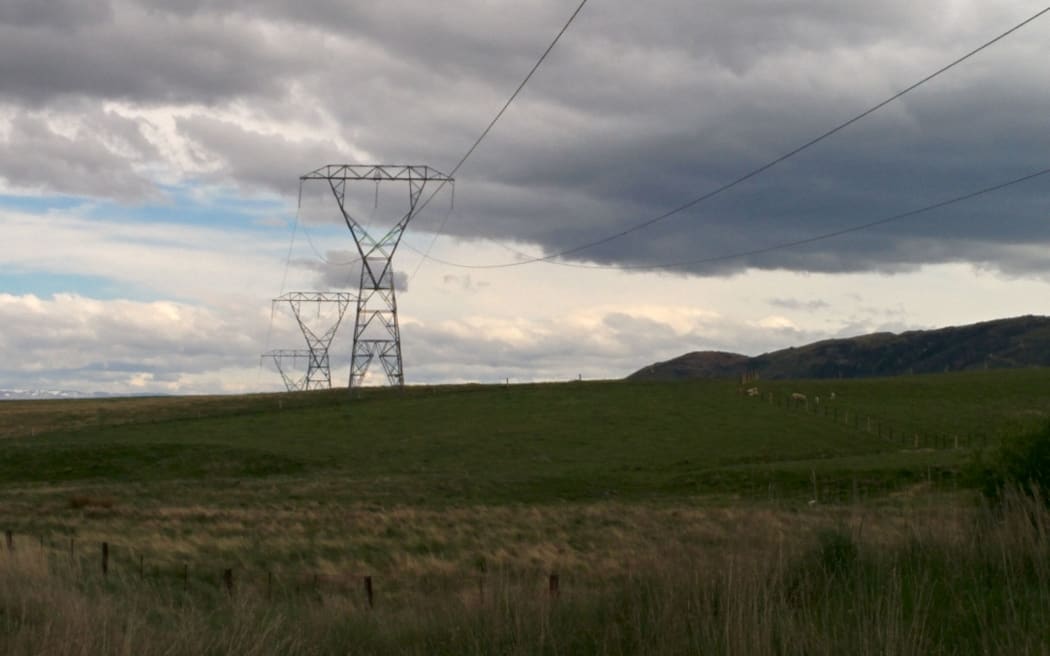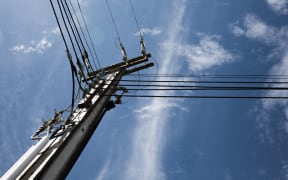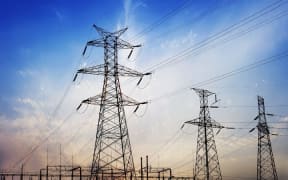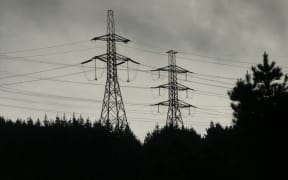Powerco customers will have to pay an extra $2.70 a month to upgrade lines, transformers and other gear dating back in some cases to the 1950s, under a draft decision announced today.

Powerco's aging power lines will get a significant upgrade. Photo: RNZ / Russell Palmer
This is on top of an average power bill of $209 per month, as estimated by the Commerce Commission.
Powerco is New Zealand's second largest lines company, and serves 330,000 homes and businesses in Manawatu, Whanganui, Taranaki, Wairarapa, parts of Waikato and elsewhere.
It applied to the Commission in June for the right to increase its earnings to $1.32 billion over five years. It got most of what it wanted - $1.27bn - an increase of one-third.
"We have carefully assessed Powerco's proposal," Commissioner Stephen Gale said.
"We accept that the company is facing significant challenges as a result of a network built in the 1950s and '60s nearing the end of its life.
"It is also under increasing pressure from powering regions with strong population and economic growth such as Tauranga."
Dr Gale said it was important to keep electricity affordable.
"However, long-lived assets like electricity networks require significant upfront investment, with the full costs recovered over their expected lifetime.
"We believe this is in the best interests of today's consumers, as well as future generations."
Today's decision marks the first time a lines company has got this treatment since Orion won special status after the Canterbury earthquakes.
Powerco's success is expected to inspire Aurora in Dunedin and Wellington Electricity in the capital to follow suit.
Equipment failures
In a report to the Commerce Commission, Powerco gave some details of the sort of problems it faced in bringing ageing equipment up to date without enough money to pay the cost of doing so.
It said in its worst-performing regions, some customers had their power cut for over 50 hours per year, which was completely unacceptable.
It said the failure rate on its overhead wires was among the worst in New Zealand and the health of its assets overall was deemed moderate to poor.
To fix this, the rate at which antiquated gear was replaced would have to increase by 60 percent over replacement levels set for the years between 2012 and 2018.
At present, the amount of equipment failing while in use more than tripled in the past decade
"The number of assets in poor condition and requiring replacement is substantial, and at current expenditure this proportion will increase to unacceptable levels," the company said in its submission.
"Given the concerning position of our network reliability, there is clearly no scope for further deterioration.
"However, that is exactly the situation we anticipate if we look at performance trends and health of our assets.
"Without well targeted intervention to address these trends, reliability will continue to deteriorate and fall even further."






